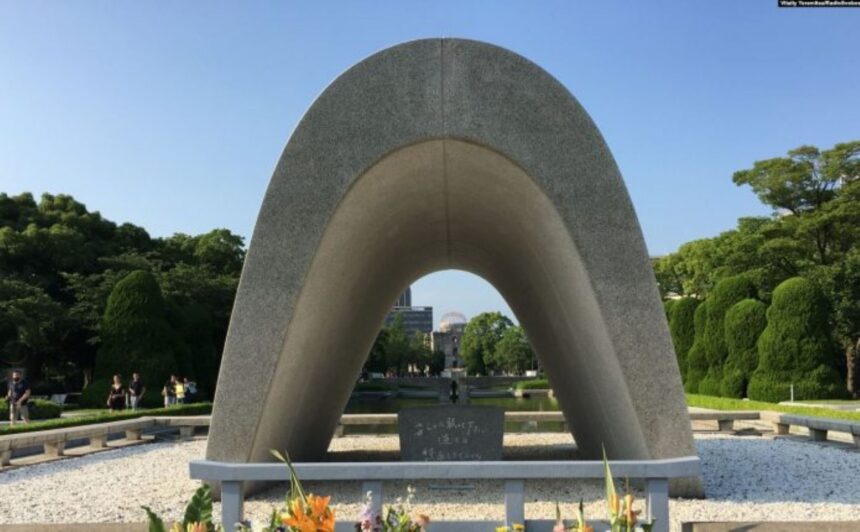Exactly 80 years after the first atomic bomb was used in warfare, thousands of people gathered in Hiroshima on Wednesday to pray and honor the victims. The city’s mayor warned world leaders about the current dangers of nuclear weapons, Reuters reports.
The Bombing and Its Aftermath
The western Japanese city of Hiroshima was obliterated on August 6, 1945, when the United States dropped a uranium bomb nicknamed “Little Boy.” The blast immediately killed about 78,000 people, with tens of thousands more dying from radiation and heat in the following months. Three days later, a plutonium bomb was dropped on Nagasaki, leading to Japan’s surrender on August 15.
Representatives from a record 120 countries and territories, including the nuclear superpowers of the United States and Israel, attended the annual ceremony at the Hiroshima Peace Memorial Park. After a moment of silence at 8:15 a.m.—the exact time of the explosion—Hiroshima Mayor Kazumi Matsui urged leaders to heed the lessons of Hiroshima and Nagasaki, warning against the global trend of military expansion.
A Call for Nuclear Disarmament
“Among the world’s political leaders, there is a growing conviction that the possession of nuclear weapons is unavoidable for the protection of their countries,” Matsui said, noting that the U.S. and Russia possess 90% of the world’s nuclear warheads.
He emphasized that this situation “not only nullifies the lessons the international community has learned from the tragic history of the past but also seriously damages the frameworks built for peacebuilding.” He concluded his address with a powerful message: “To all leaders around the world: Please visit Hiroshima and witness the reality of the atomic bombings for yourselves.”
A 71-year-old tourist, Yoshikazu Horie, expressed a similar sentiment, stating that “it feels more and more like history is repeating itself.”
In the decades since the attacks, the survivors, known as “hibakusha,” have often faced discrimination. Their number dropped below 100,000 this year for the first time. Despite being the only country to have suffered a nuclear attack, Japan is not a signatory or an observer to the UN treaty on the prohibition of nuclear weapons.







